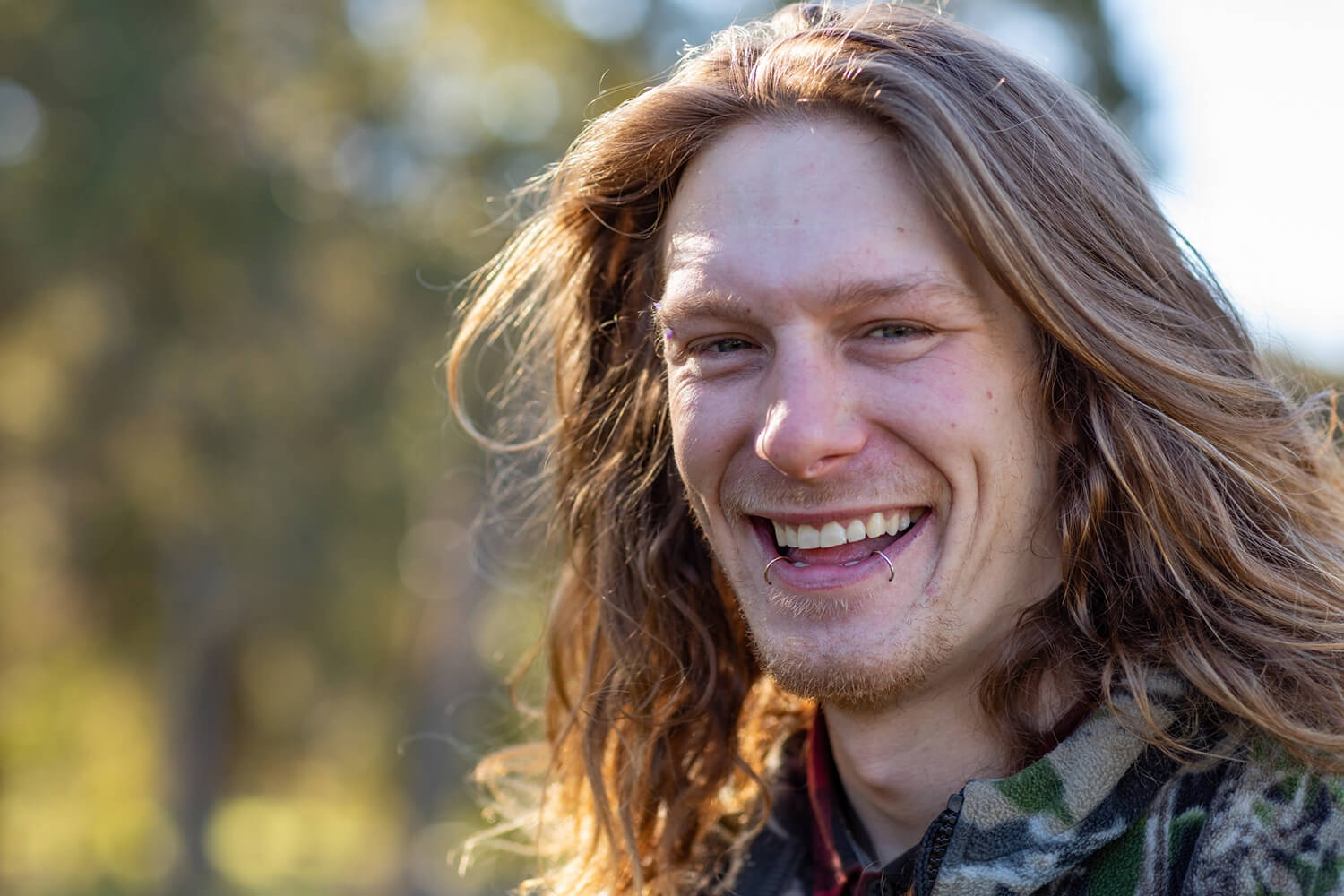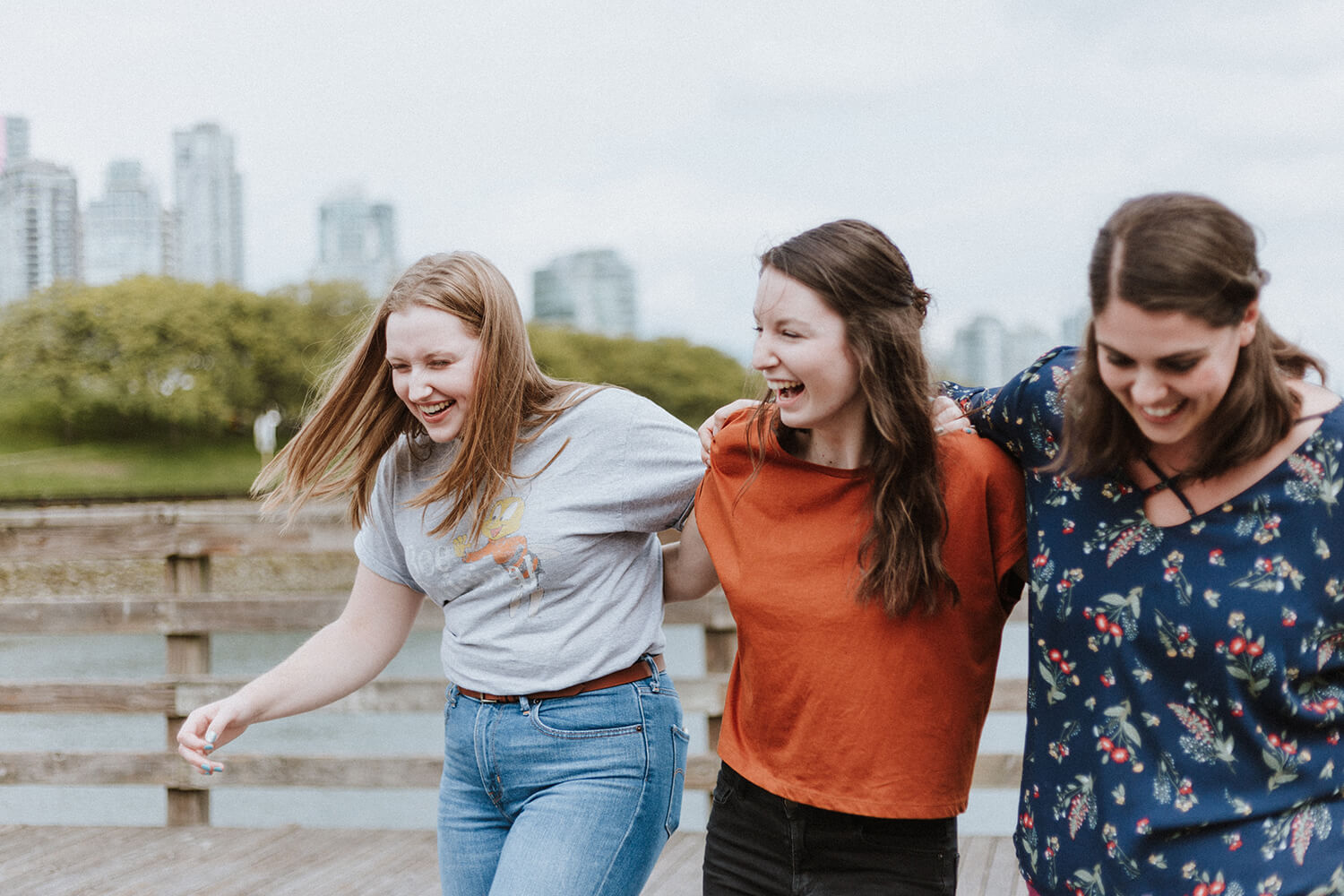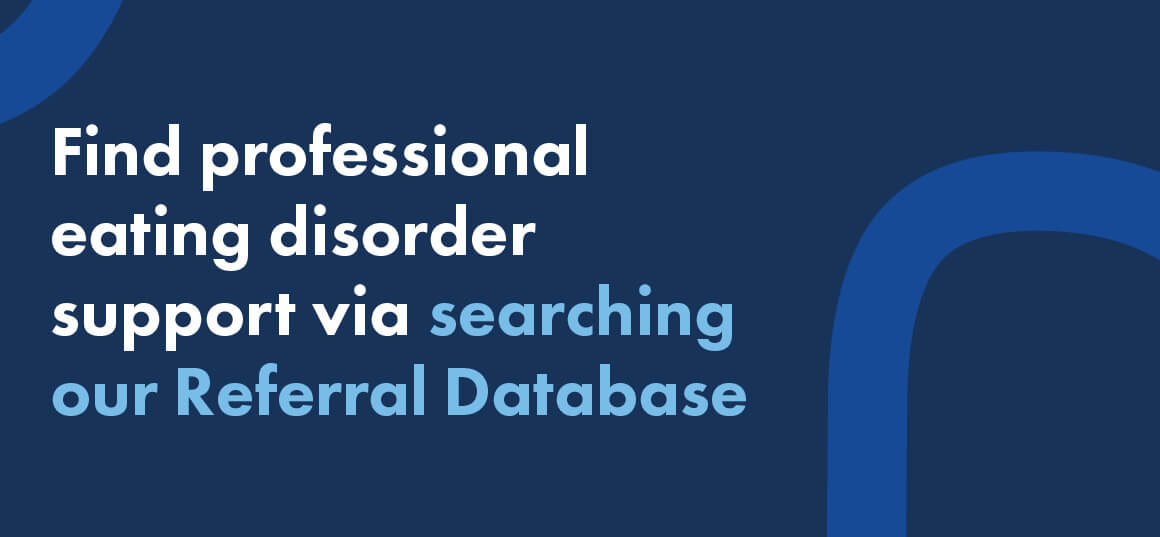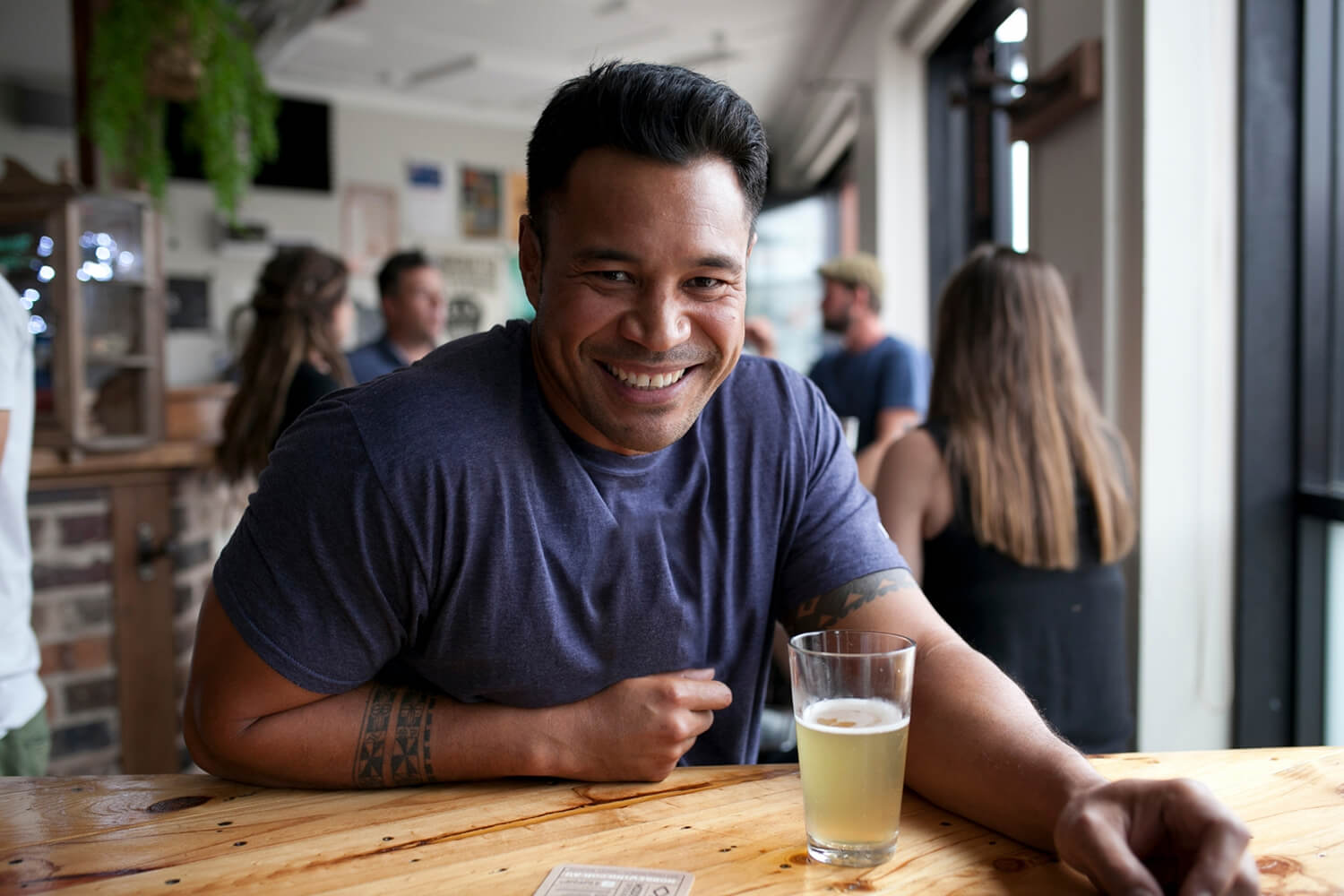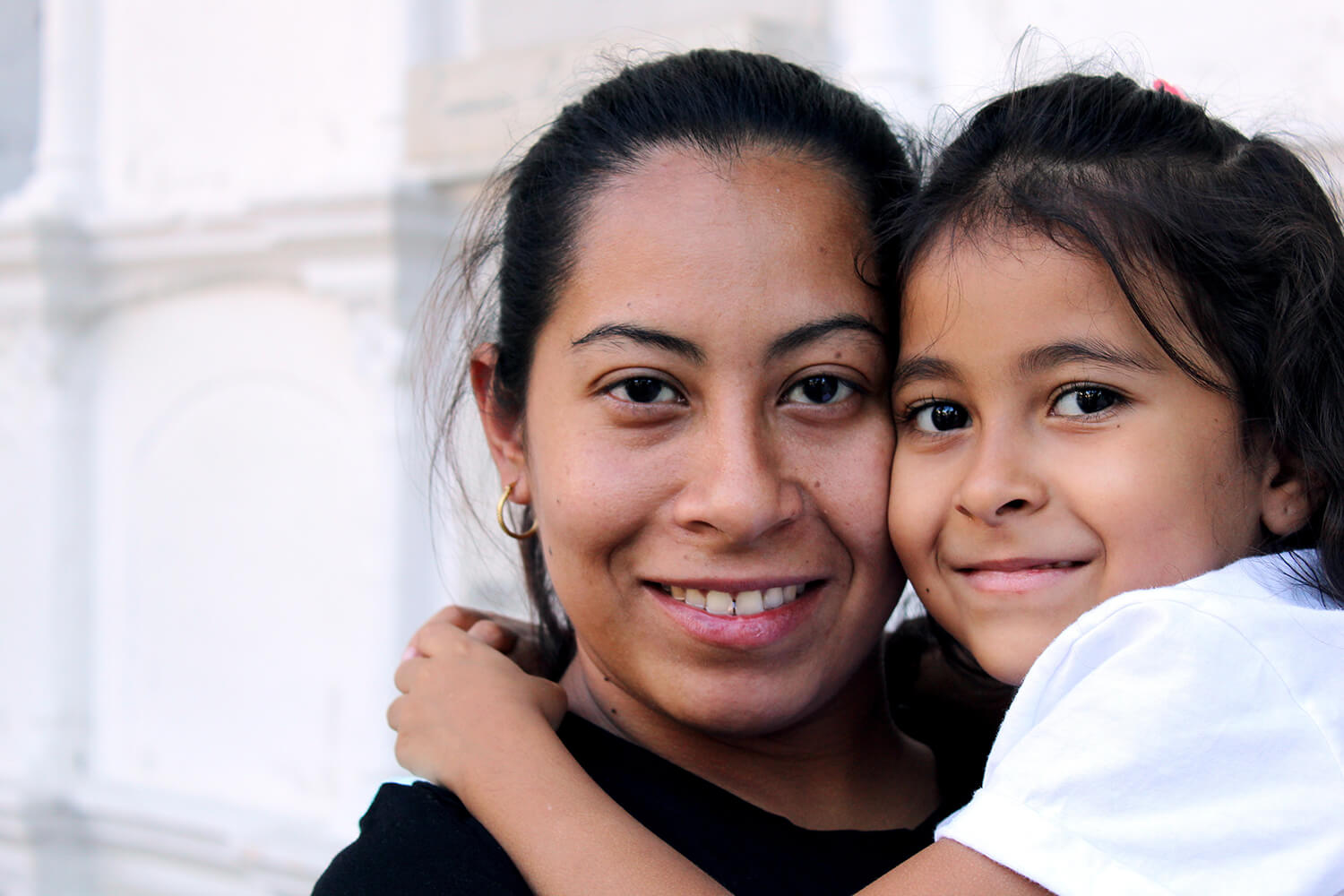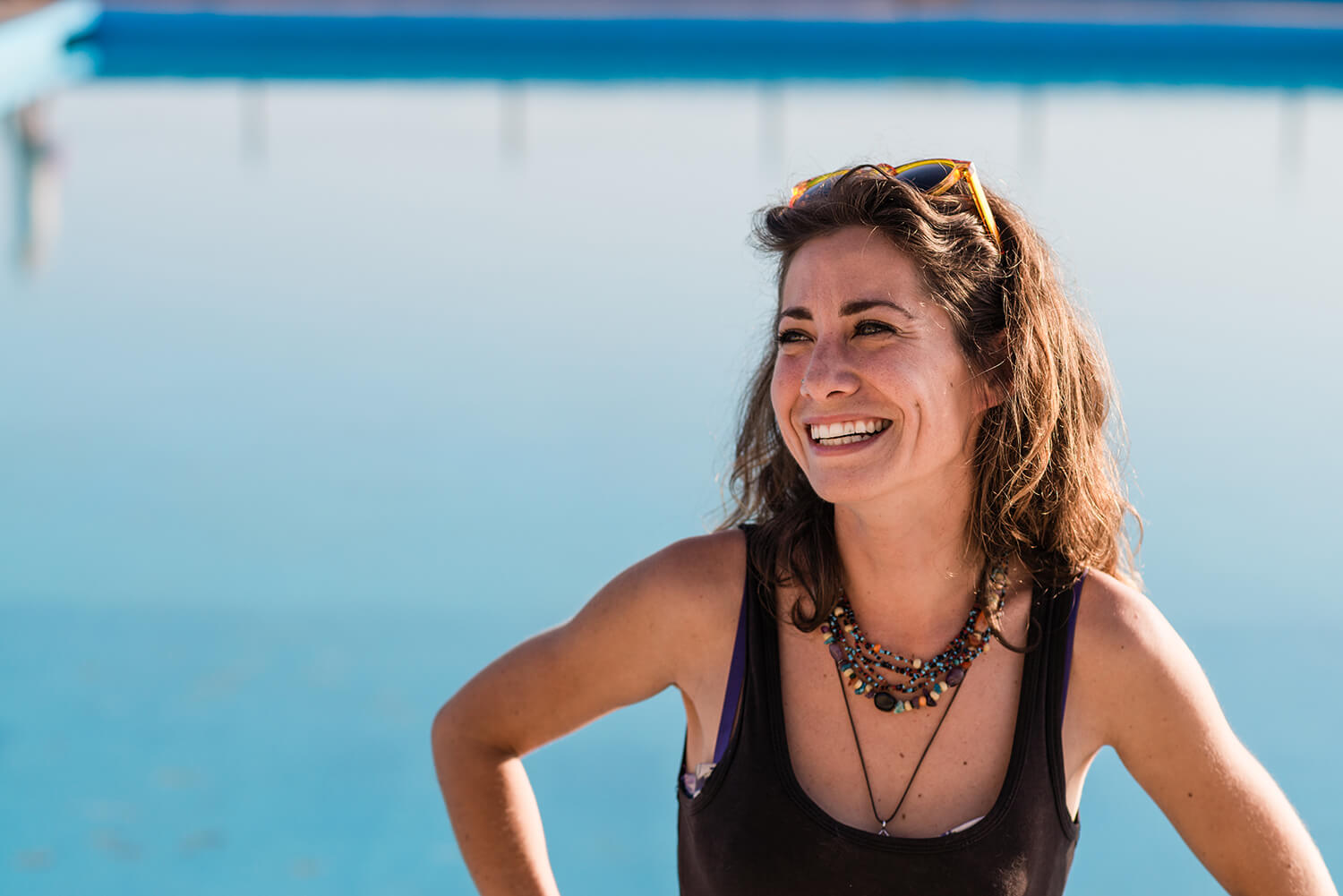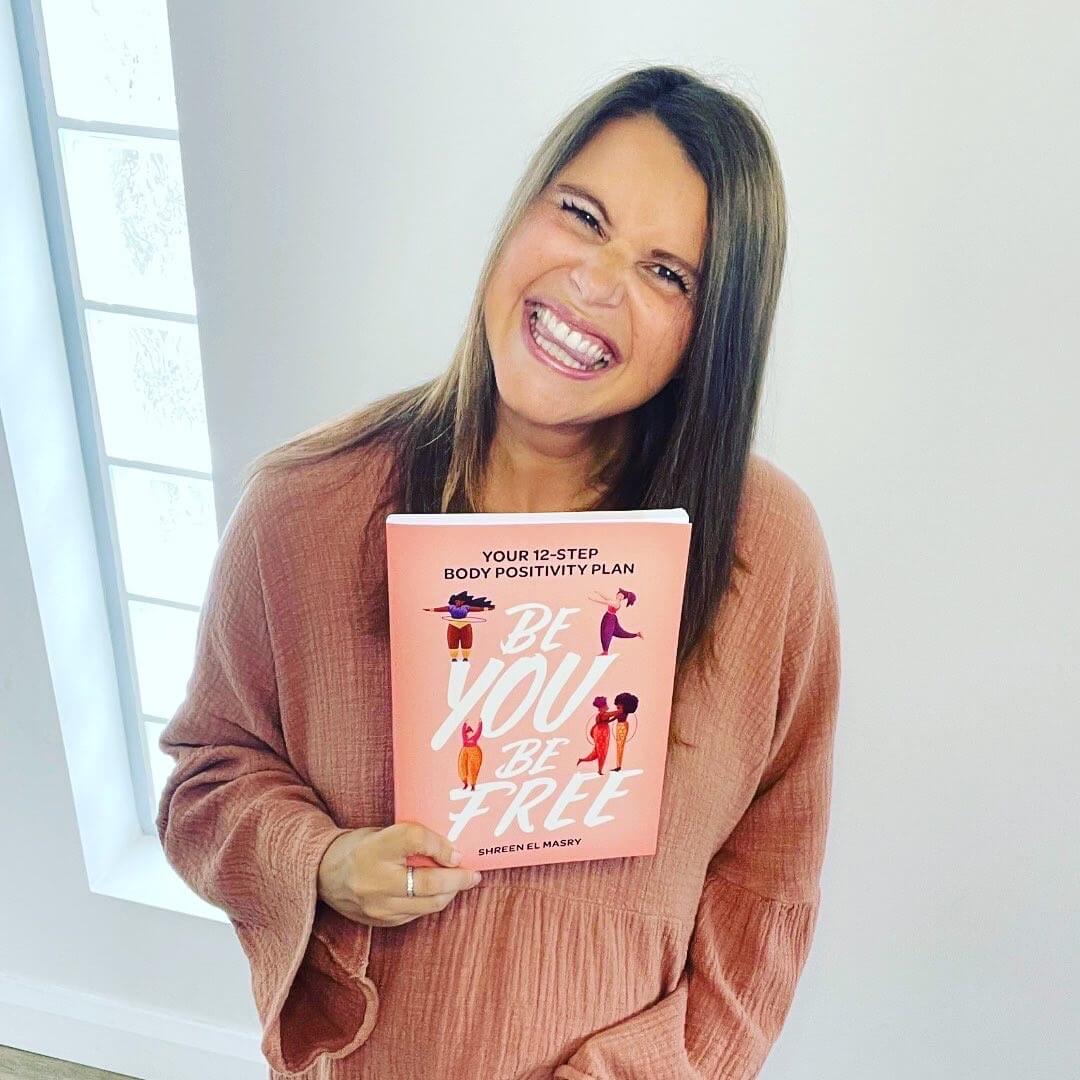No Diet Day: Why our community are ditching diets for good
Today, 6th May, is International No Diet Day. It’s a day to celebrate and accept all bodies, in all forms of diversity. A day to remember and focus on why we fight against body discrimination, weight stigma, diet culture and fat phobia. A day to leave the food rules at home and eat what you want, when you want, because you enjoy it. No guilt, no bad feelings, no obsessions. A day to just… be.
Research suggests that dieting is the greatest risk factor in developing an eating disorder.
Following strict regimes and rules around food and exercise can negatively impact the wellbeing of an individual, particularly when goals are not met and restriction, deprivation and guilt arises.
Further, it’s no secret that the majority of diets don’t work, with research demonstrating at least one-third to two-thirds of people on diets regain more weight than they have lost within four or five years.
Our community is passionate about living a life free from dieting and strict food rules, but they’ve all worked incredibly hard to get to this stage. It’s not easy to unpack the constructs and beliefs that our diet culture-ridden society imposes on us daily. Doing so requires active work. We have to train our brains to recognise that our worth is so much more than our appearance. We have to consciously challenge ourselves and make the hard decisions, which might bring fear and anxiety to the surface. We have to remember that a living a life of restriction, pressure and guilt, isn’t really living a life at all.
Today, on International No Diet Day, we’re encouraging you to take a day for yourself, without the food rules, restrictions and diets. While it might be difficult, starting off with one day of food freedom can be the catalyst to implementing these practices daily – and ultimately, living a life free from guilt and obsession.
Read on for inspiration from our community as to why you should ditch the diets for good.
 Brooke – @bybrookelindsay
Brooke – @bybrookelindsay
Why do you say no to diets and dieting?
My relationship with food is more about how it makes me feel and less about how I think it will make me look. I say no to diets because they are mentally and physically toxic. How much energy our body needs varies based on many factors and can’t be determined by a one-size-fits-all diet.
How can we eliminate diet culture and instead focus on body acceptance and kindness?
Eliminating diet culture in a weight-obsessed world isn’t easy. It’s a daily practice that requires us to be aware of the unhealthy messages we receive about food and our bodies daily to protect ourselves from their influence. Please do your research on intuitive eating and focus on what your body can do instead of how it looks. Let’s focus on listening to our bodies, respecting them and enjoying the foods that make life worth living!
 Victoria – @aspenakot
Victoria – @aspenakot
Why do you say no to diets and dieting?
I say no to diets and dieting because it is just another euphemism for disordered eating. I ditched dieting because it is never healthy to restrict and cut off entire food groups. It isn’t balanced to have a strained relationship with good nutrition. I ditched dieting because I learnt that the changes in my body are really not what I want, but changes in my heart. I ditched dieting for good, when I learnt that my body is my body. I’m not a plaything for diet culture. I am me and that will always be enough. HAPPY NO-DIET DAY!
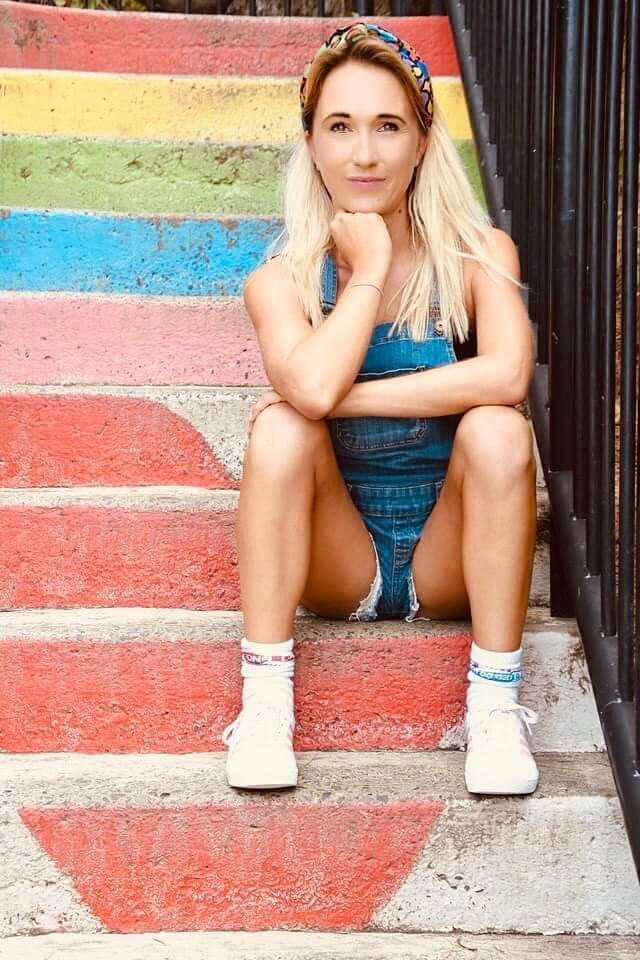 Jen – @thisgirlrising
Jen – @thisgirlrising
Why do you say no to diets and dieting?
Having recovered from 17 years consumed by an eating disorder, diets/ dieting are something I never wish to engage in. I believe no one else should either, whether they have battled an eating disorder or not. Imagine getting to the end of your life having missed out on so many joyful experiences, foods and pleasures, because you were so obsessed with making sure you stuck to rigid rules around food/ exercise, all in effort to achieve a physique which you believe will make you happy. But the truth is happiness will never be found in a body shape/ size. Happiness is in being able to embrace all that life offers, and that includes being able to enjoy all foods without a side helping of guilt. Food is not something to be feared, exercise is not a punishment. I dream of a day where we see a world free of diet culture and free from eating disorders. So people can remember what the true purpose and life is.
How can we eliminate diet culture and instead focus on body acceptance and kindness?
We need more voices to stand up to diet culture, we need more regulations on social media and accounts promoting disordered eating. Diet culture to be called out. We need more voices like ours to educate and shine and light on embracing all that we are, reminding people that their body is a vehicle, not an ornament to be admired or judged. To remind them they are so much more than a body, in fact their body is the least interesting thing about them. We need more people be brave enough to call out diet culture and teach children from a young age the 50 shades of grey in nutrition, removing the black and white thinking around food. I will continue to speak up to push for a world free from dieting.
Jan – @worthofjan
 How can we eliminate diet culture and instead focus on body acceptance and kindness?
How can we eliminate diet culture and instead focus on body acceptance and kindness?
In this world where a lot of people thought that the only way to be happy is when they lose weight or change their appearance, it is vital to have someone to open their minds to the truth and open their eyes again to the beautiful life that was covered by diet culture. We have to keep on reminding people that self-worth can never be defined by physical appearance or the things that fluctuate in our lives. Let’s keep on spreading awareness and help others to know their purpose and their worth in this world.
Korey – @storyofkorey
 Why do you say no to diets and dieting?
Why do you say no to diets and dieting?
A decision to try dieting inevitably led to the development of my eating disorder. After years in recovery and now as a Non Diet dietitian, I say no to diets because they never truly deliver what they promise and instead create disturbed relationships with food, our mind and bodies.
How can we eliminate diet culture and instead focus on body acceptance and kindness?
We can help dismantle diet culture by recognising where it shows up in society, calling out fatphobia and weight-based discrimination and listening to stories of people in marginalised bodies.
Jack – @jack.nash98
 Why do you say no to diets and dieting?
Why do you say no to diets and dieting?
Personally for me, dieting was the catalyst for a 7-year battle against a life-threatening eating disorder. Associating food with numbers and guilt was detrimental to my health and happiness.
Recovery was my opportunity to ditch diets/diet-culture for good and I’ve never looked back. Today I am free to enjoy the food I love whenever I want, and life has become a lot more colourful.

Sabine – @sabine.mckenzie
Why do you say no to diets and dieting?
Some of the reasons why I say no to dieting:
– Dieting is an oversimplification of the complexities of what it means to be healthy.
– Dieting = restriction of some sort, whether it be a certain food, an entire food group or a limit of calories. Restriction = hyperfocus, forbidden fruit effect and usually eventually overeating these things leading to feelings of shame/guilt
– Dieting results in foods being placed on moral pedestals and being seen as good/bad and me being good/bad for consuming them.
Conscious eating, food freedom and health/worth beyond weight are my preferred ways of living. Where I’m able to tune in to my hunger/fullness cues, recognise nourishment as being more than meeting nutritional needs and have full freedom to eat all foods. No shame or guilt or being good/bad. Food is food. And I measure my health by my mood, my relationship with food/exercise/body image, my relationship with myself and others, my mental health, my sleep, my blood pressure, my blood results…just to name a few alternatives to the scale!!
How can we eliminate diet culture and instead focus on body acceptance and kindness?
I wish we could flick a wand and make immediate systemic and political changes to eradicate the contributors to diet culture including fat phobia and weight stigma. I don’t have this magic wand unfortunately but there are ways we can start to shift our own individual focus (and money!) away from diet culture.
Broaden your definition of what it means to be healthy (and worthy) beyond a certain weight or beauty ideal. Consider ditching the scales!
If body acceptance seems like too big a jump from where you are now, consider starting with tolerance. Can you tolerate the body you see when you look in the mirror? Reminding yourself of what your body does for you (rather than what it looks like) can be helpful.
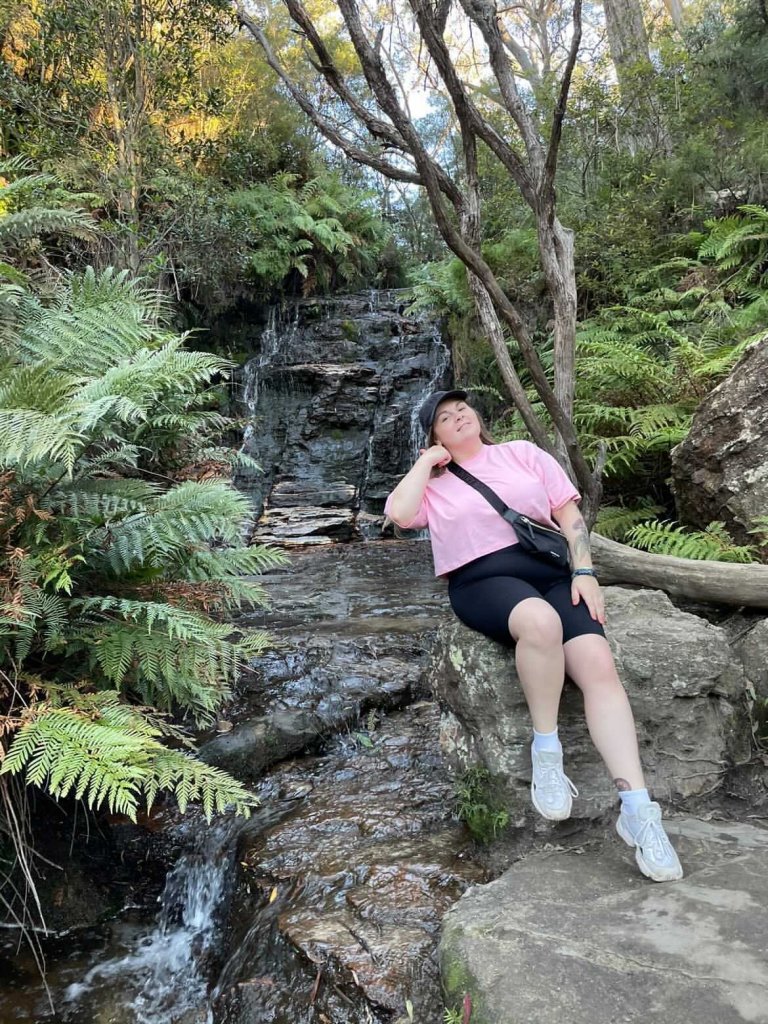 Chloe – @vanillasociety_
Chloe – @vanillasociety_
Why do you say no to diets and dieting?
I first started saying no to dieting because it never really worked for me, my weight only ever fluctuated and I always put it back on. It wasn’t until I started seeing the Instagram accounts of girls in bigger bodies who were fit and healthy that I realised that maybe this was the size my body was meant to be and that maybe I didn’t need to lose weight to be healthy. I realised that health was about more than weight and that my relationship with food was actually unhealthy when I was dieting.
How can we eliminate diet culture and instead focus on body acceptance and kindness?
Women deserve to be recognised for more than their appearance. Diet culture profits off our insecurities and tries to convince us that our appearance is the most important thing about us but it’s not. We have passions, emotions, skills, relationships, goals and strengths and all of these things make up who we are. Our bodies make all of those things possible, they are our homes and they do they’re best to look after us, they deserve kindness and compassion. Sometimes this can be easier said than done but we can try to focus on all the wonderful parts of our character instead of what we look like!
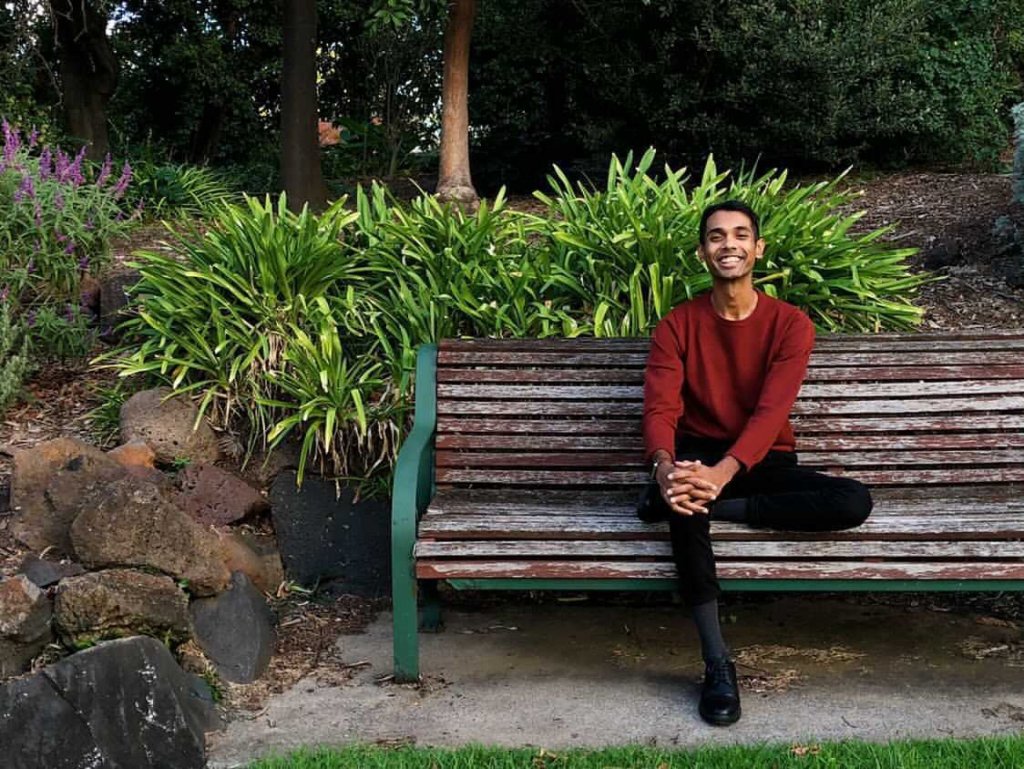 TJ – @tharindujay
TJ – @tharindujay
Why do you say no to diets and dieting?
I say no to diets and dieting because I’m learning to understand what my body needs to thrive, and that process shouldn’t be focused on what my body looks like or what it can’t do. Today I’m choosing to recognise my body for what it can do, like dancing to a bop playing in the car, or smiling when I see a dog walk past on the street.
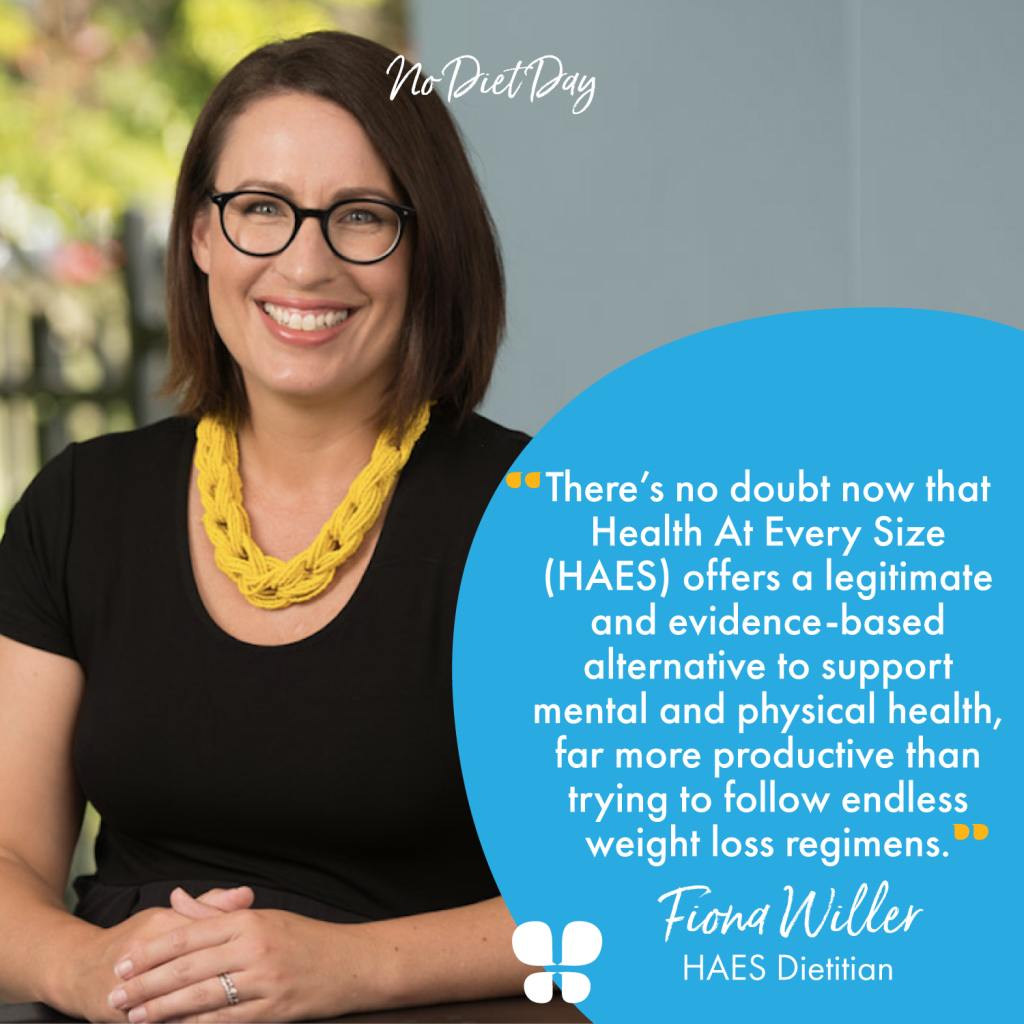
Read Health At Every Size (HAES) Dietitian Fiona Willer’s thoughts on why she has dedicated her career to HAES.




